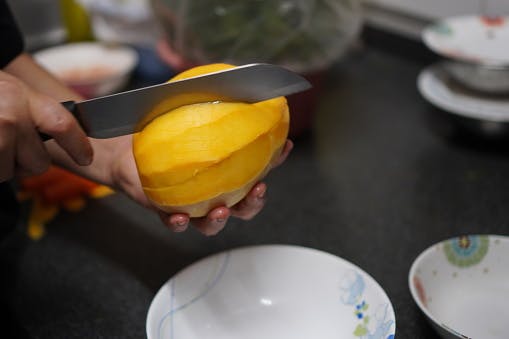Mangoceuticals’ partnership with Eli Lilly and Novo Nordisk? News to them.
The situation underscores how badly everyone wants a slice of the GLP-1 revenue pie.
Mangoceuticals, a microcap telehealth startup, announced that it’s partnering with Eli Lilly and Novo Nordisk to sell their blockbuster weight-loss drugs. It appears nobody told the pharmaceutical giants about the deal.
The company, which sells knockoff GLP-1s and other products through its brands MangoRx and PeachesRx, announced Thursday morning that it would now be integrated with Lilly and Novo’s direct-to-consumer pharmacies, which offer the drugs at a discounted cash-pay price.
The stock rallied in premarket trading as investors hoped it would drive a much-needed sales boost. As it eventually became clear that it was not an actual partnership, the stock gave back its gains and then some.
In a statement, Lilly said it has “no affiliation” with Mangoceuticals. In fact, Lilly sued it last year for selling pill versions of its weight-loss shots. Novo did not immediately respond to a request for comment, but told Reuters it had no arrangement with Mangoceuticals.
A telehealth company doesn’t need to have a “partnership” with a drugmaker to simply direct its patients to that site, and perhaps Mangoceuticals’ announcement was just a creative way to describe that. (The company did not respond to a request for comment.)
Though Hims & Hers did not call it a partnership, Lilly similarly cleared up confusion in April after the telehealth company said it would begin offering Lilly’s branded products on its platform. Lilly and Novo do have arrangements with other telehealth companies, like Ro and Weight Watchers, though the terms are never quite clear.
The situation underscores how badly players want a slice of the GLP-1 pie.
Companies like Mangoceuticals sell compounded versions of medications discovered by Big Pharma, including and especially GLP-1 shots. Compounded shots are typically cheaper than buying the branded products manufactured by Novo and Lilly, which are often not covered by insurance.
That price difference led to a GLP-1 telehealth boom, but prices for branded GLP-1s appear to be coming down.
Lilly and Novo’s direct-to-consumer channels offer monthly doses for roughly $500, compared to the upward of $1,000 list price typically charged to insurers. The drugmakers recently announced a deal with the White House to lower prices even further next year.
As consumers gain access to branded GLP-1s, companies like Mangoceuticals are left with sky-high marketing costs and stagnating sales.
